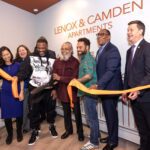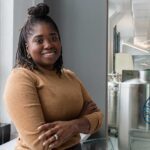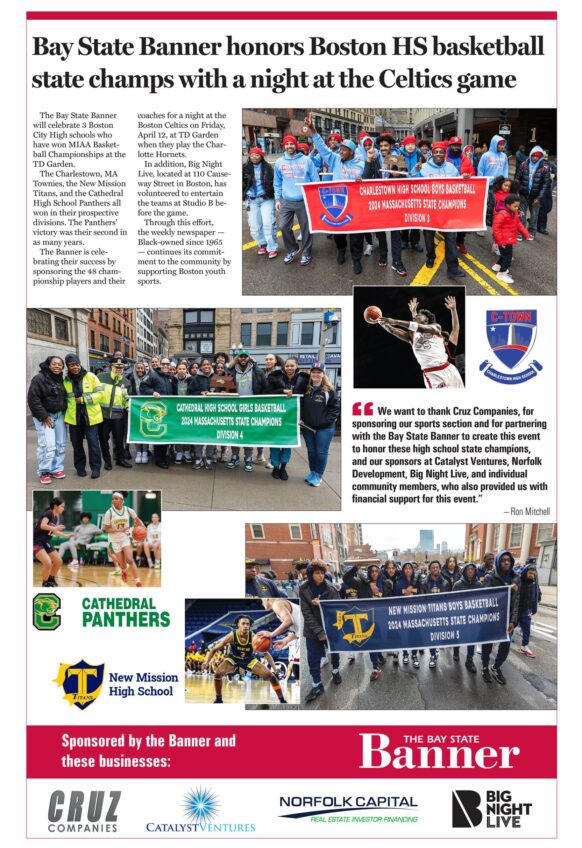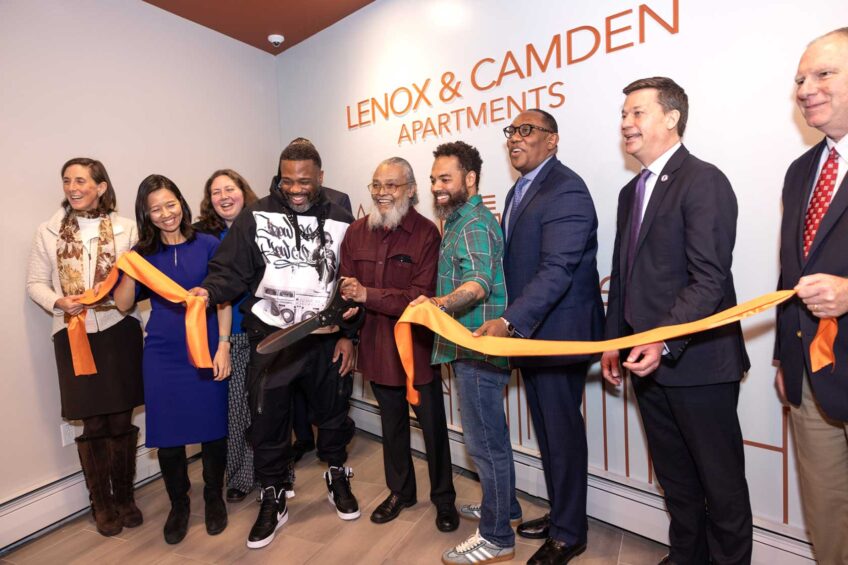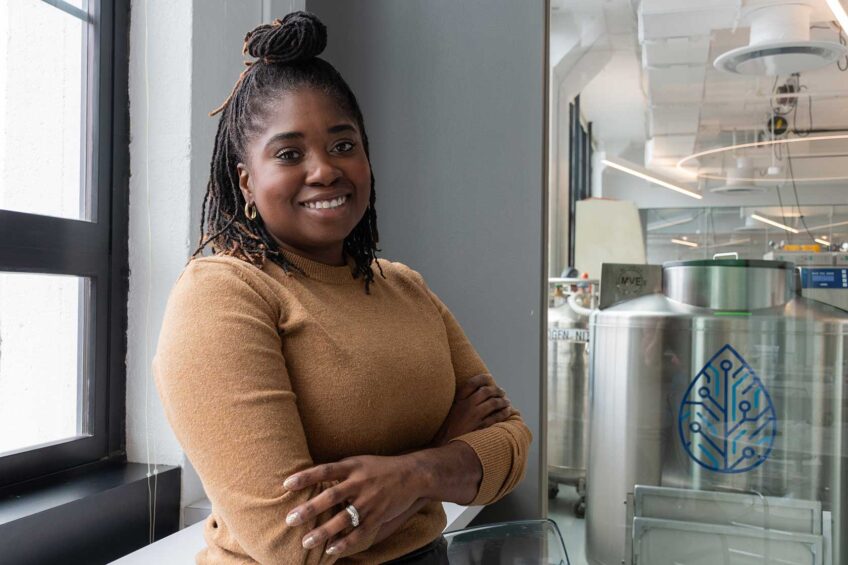#MeToo activist calls for action from MA officials
Founder of social movement says fight is far from over
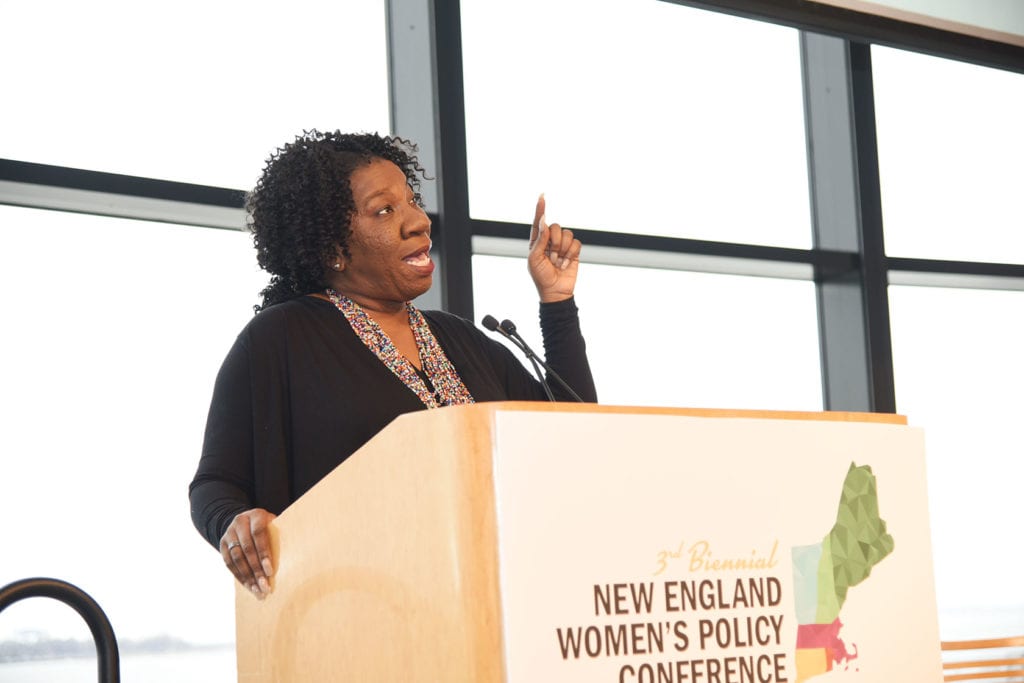
Tarana Burke, founder of the #MeToo movement, urged policymakers and advocates at the New England Women’s Policy Conference Nov. 16 to create long-lasting societal change by addressing pervasive issues of sexual violence in their communities.
Almost 400 delegates gathered last Friday at the John F. Kennedy Presidential Library and Museum for the third biennial conference dedicated to women’s economic security, organized as part of the New England Women’s Policy Initiative by the University of Massachusetts Boston’s Center for Women in Politics and Public Policy.
Burke, senior director at Girls for Gender Equity in New York, began a “Me Too” movement to support survivors and end gender-based violence in 2006, 11 years before the hashtag went viral.
“Every hashtag is a person, is a human being on a computer who made a decision to labor and put themselves out to the world with this deep dark secret, with this thing they’ve been holding and struggling with for God knows how long,” said Burke, who in her keynote speech addressed a wide range of issues related to sexual violence, including sexual assault on college campuses, the treatment of perpetrators and the partisan response to Dr. Christine Blasey Ford’s testimony during Supreme Court Justice Brett Kavanaugh’s confirmation hearing.
“Millions of people all around the world had to make this decision and they made it because they wanted to be counted, they wanted to be seen, heard and believed,” she said. “That’s all survivors are asking for.”
Social movement
Twelve million people engaged with the #MeToo hashtag on Facebook within 24 hours of it going viral, Burke said. “All I did was shine a spotlight on a problem we all knew existed but couldn’t find space to talk about because of the shame, the blame, the fear, the misogyny, the patriarchy, all of the things we fight every day,” she said.
Burke spoke candidly about her experience of sexual abuse as a child. She said that much of her life’s work as a community organizer and activist has been inspired by her mission to answer one central question: how to live with deep pain and experience joy at the same time.
Part of her answer was to undertake a personal healing journey and to help other survivors. After graduating from college in Alabama and meeting many other young survivors of sexual violence, Burke established Just Be Inc., a nonprofit focused on the holistic well-being of sixth- to eighth-grade girls of color.
“[Sexual violence] was a problem in our community,” said Burke, “and at the heart of that problem was that no one had ever said to these girls, ‘You are not the sum total of the things that happen to you.’” So began her personal and professional endeavor to give survivors hope for healing, a path that ultimately led to #MeToo.
“#MeToo went viral because millions and millions … of the walking wounded around the world were waiting for an opportunity, just a chance…” Burke trailed off at this point in her speech, the strength and energy expended in addressing the hushed audience visibly taking its toll. With this conference coming at the end of an extensive international speaking tour, Burke said she felt physically, mentally and emotionally exhausted. “We shouldn’t have to fight this hard for our dignity,” she said.
Opposition
Opponents of the movement include those who question the validity of survivors’ memories and give disproportionate attention to perpetrators.
“It’s criminal that 12 million people in a day can say, ‘This thing has affected my life,’ and our response is, ‘What about the perpetrator? When can they come back?’” said Burke.
Kavanaugh’s appointment to the Supreme Court and the hearing in which Blasey Ford testified to being sexual assaulted by the nominee as a teenager showed Burke the battle still ahead for the #MeToo movement.
“That 36 years later a woman can sit in a room with people who are openly hostile towards her, with her voice trembling, and talk about the harm it is still causing in her life and be pushed back on the way she was, means people just don’t get it,” said Burke.
“I think people don’t get that being a survivor means waking up every day and deciding to survive,” said Burke, admitting that she, like many others, sometimes struggles to face the world. “It’s not just an easy label to put on, it’s a label that once you take on, it’s a job.”
Allies
Burke has many allies in Massachusetts, including Suffolk County’s first female black district attorney-elect Rachael Rollins, who introduced the keynote speaker.
Referring to an online survey, released in January by nonprofit Stop Street Harassment, which reported that 81 percent of women said they have experienced sexual assault or harassment over their lifetime, half by the age of 17, Rollins said, “These are things that, as district attorney, I want to make sure that women … know they have an ally here.”
Rollins committed to training assistant district attorneys and victim witness advocates in techniques for questioning that limit the risk of re-traumatizing survivors.
On the same day that U.S. Education Secretary Betsy DeVos announced a major overhaul of college and university procedures in handling sexual misconduct allegations, which includes additional protections for accused students, Rollins said, “Sexual assault on college campuses and high schools is rampant, and I want to say out loud, I don’t want to cede my power to a Title IX coordinator.” She said her office will listen and try to assist any survivor of campus sexual assault or harassment, whether or not the educational institution involved decides to investigate their report.
Pressing newly elected officials like Rollins to capitalize on the viral social media campaign’s momentum in order to create permanent solutions, Burke said she expects lawmakers and policymakers to “be looking at the kind of policies that you can change in your communities.”
“We need innovative and thoughtful policies that center survivors, that center our leadership, that center our experiences,” she added.
Burke suggested that Thanksgiving is the perfect opportunity to speak with loved ones and friends about the #MeToo movement and share the reality of sexual violence. Urging audience members to become ambassadors, Burke said, “This is a very important moment in history … and if we don’t talk about this differently, if we don’t respond to it differently, we are going to miss this opportunity and it’s going to be horrible.”
“I don’t know how long this window is going to be open,” she added, “but while it’s open, y’all, we need to get as much done as possible.”


